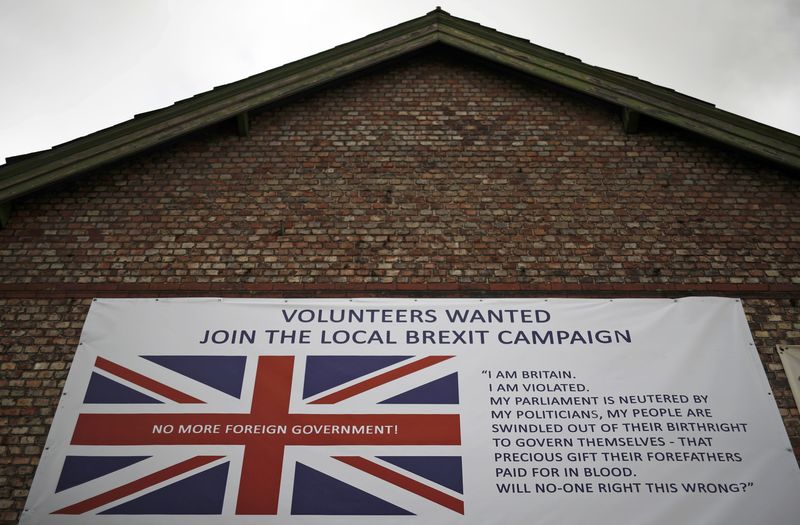Gold prices set for weekly gains on dovish Fed outlook; silver near record high
By Alastair Macdonald
BRUSSELS (Reuters) - The European Union said uncertainty before next month's referendum on EU membership may hurt British economic growth this year but it shied away from any comment on Tuesday on what may happen if Britain quits the bloc.
In its latest round of economic forecasts, the European Commission, the bloc's executive, predicted GDP growth in Britain of 1.8 percent this year and 1.9 percent next.
That was slightly higher than the euro zone but down on last year's British growth of 2.3 percent and on the 2.1 percent for 2016 and 2017 that it forecast for Britain in February, before Prime Minister David Cameron set the referendum for June 23.
"Risks to the outlook are tilted to the downside, reflecting less favourable external demand and uncertainty in the lead-up to the June referendum," the Commission report said. It also said the uncertainty posed a risk to euro zone economic growth, which posted a surprise 0.6 percent surge in the first quarter.
The Brussels-based Commission was at pains to stress, however, that it was making no forecast for what might happen to either the British or euro zone economies if Britain leaves the EU - a process that would be begun by the vote next month but would only be completed after negotiations of a least two years.
"Our forecasts are built on the assumption of no policy change and for the UK we know what no policy change means of course so we are not going to comment ... especially not on this issue," Economics Commissioner Pierre Moscovici told reporters when asked about the possible effects of Brexit on the economy.
The impact on trade, investment and employment has been a key issue in the referendum campaign, with the government and Remain camp forecasting a sharp hit from leaving the EU and the Leave side stressing benefits from trading with other regions.
Commission officials insist they are making no contingency plans for a British departure, not least because they fear any such plan would leak and play into a campaign in which it does not want to be portrayed as trying to manipulate public opinion.
Moscovici repeated that the EU wants Britain to stay after renegotiating its membership terms in February. EU officials and diplomats have warned, however, that other states will be in no mood to give Britain free access to EU markets if it chooses to end its obligations as a member of the bloc.
